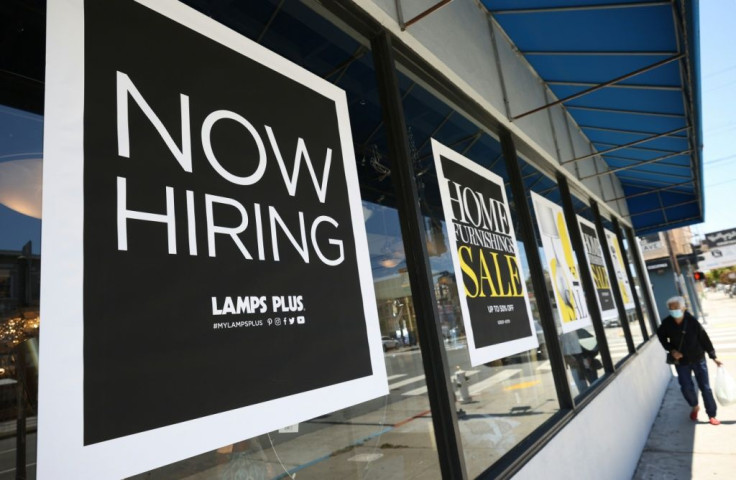Americans Live A Job Market Dream: How Long Will It Last?

A labor market report released last Friday by the Bureau of Labor Statistics (BLS) portrays a dream job market for American employees: plenty of jobs, little competition and rising wages. But dream job markets do not usually last long. Instead, they are killed by the next recession. However, experts are divided on when that would be.
The BLS report said that the U.S. economy added 390,000 jobs in May, well above market expectations of 325,000, with overall employment moving close to the pre-pandemic level. Meanwhile, the unemployment level remained at 3.6%, the lowest since February 2020, confirming that the labor market remains tight, which helped push earnings up by an annual rate of 5.2%.
"Today's jobs report came in above expectations, indicating that the job market remains strong - even if just for now - and workers are still looking to pivot roles or industries for a position that fits what they want," Cody Harker, head of data and insights at Bayard, a recruitment marketing company, told International Business Times. "In fact, Bayard saw a 3.52% month-over-month increase in click volume on job ads in May, with the largest increase in verticals such as Leisure and Hospitality, Healthcare and Professional Services, indicating people working in these sectors are eager for a change."
A strong jobs market gives job seekers a great deal of bargaining power in the employment equation, translating into better employment contracts and more job choices.
"Employees are increasingly looking for higher wages to keep up with inflation, and we're still seeing a growing number of people switching jobs for financial wellness benefits like on-demand pay, savings plans and spot bonuses," James Neave, head of science at job search engine Adzuna, told International Business Times.
Harker agrees.
"Given high inflation, job seekers are prioritizing higher wages as well as workplace flexibility. In fact, the data is showing that a quarter of all professional jobs in North America will be remote by year's end, so companies must ensure benefits and compensation packages align with job seekers' expectations," said Harker.
Neave is concerned about a recent hiring freeze in the high-tech sector. He thinks that today's job seeker's dream "could shift quickly if the tech hiring freeze continues and if we do enter a recession."
Harker agrees, seeing many more uncertainties looming ahead, like higher interest rates and persisting supply chain issues.
"While companies are still actively filling open roles now, it will be important for job seekers to keep an eye on the market and be more cautious about job changes with fewer opportunities available," he said.
Bill Armstrong, president of recruiting at Safeguard Global, doesn’t subscribe to this scenario.
"It's promising to see employment numbers have exceeded initial estimates in May," he told International Business Times. "The number of job openings remains close to record highs with about two job openings for every job seeker. This is indicative of a labor market that is very strong and not slowing down. Employers are still having a difficult time finding talent, and while there have been some layoffs here and there, we haven't heard anything from our clients at Safeguard Global regarding large-scale cutbacks or hiring freezes."
Only time can tell when the next recession will hit the American economy, killing the job market dream employees live right now.
© Copyright IBTimes 2024. All rights reserved.






















